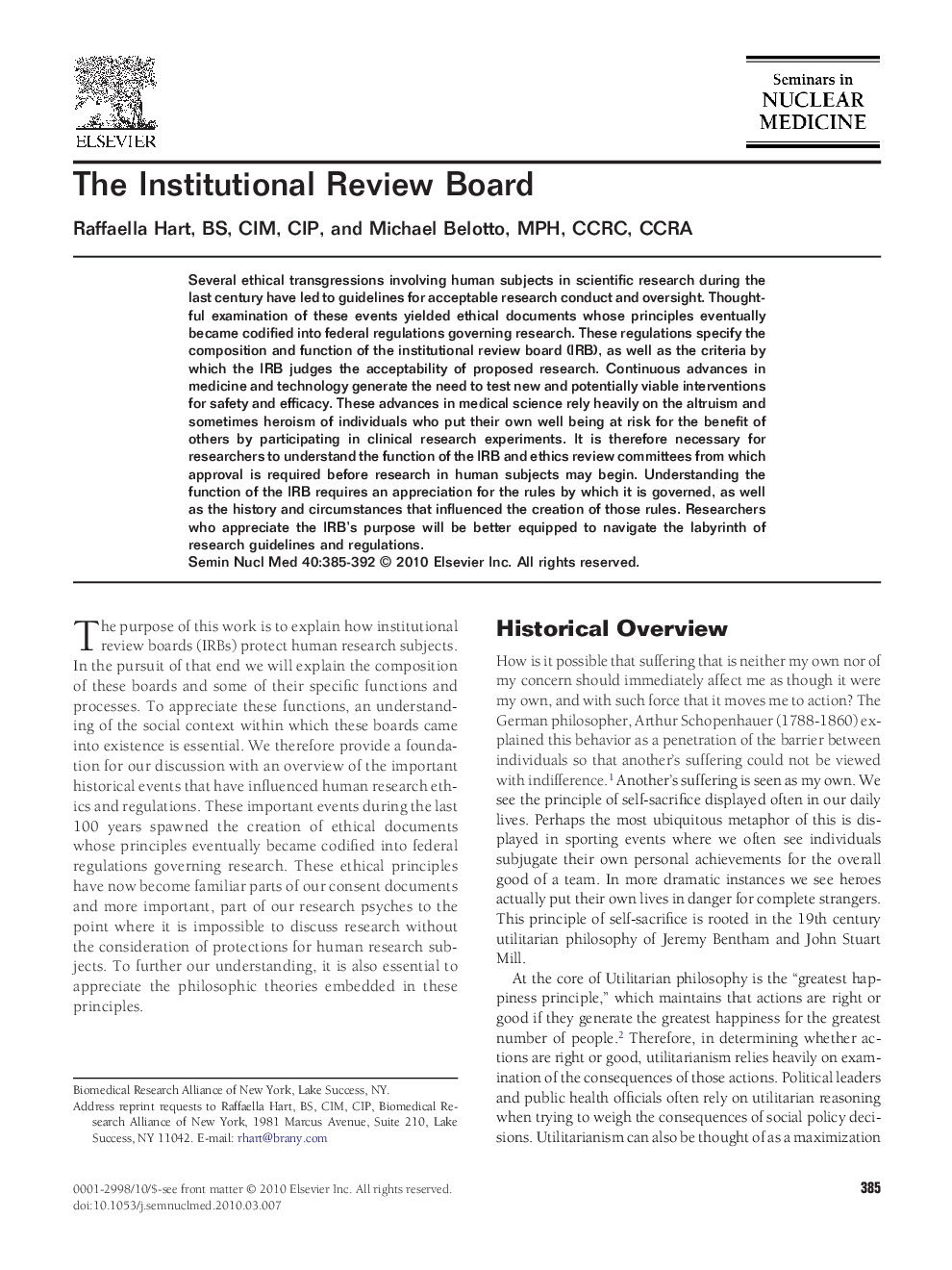| Article ID | Journal | Published Year | Pages | File Type |
|---|---|---|---|---|
| 4251194 | Seminars in Nuclear Medicine | 2010 | 8 Pages |
Several ethical transgressions involving human subjects in scientific research during the last century have led to guidelines for acceptable research conduct and oversight. Thoughtful examination of these events yielded ethical documents whose principles eventually became codified into federal regulations governing research. These regulations specify the composition and function of the institutional review board (IRB), as well as the criteria by which the IRB judges the acceptability of proposed research. Continuous advances in medicine and technology generate the need to test new and potentially viable interventions for safety and efficacy. These advances in medical science rely heavily on the altruism and sometimes heroism of individuals who put their own well being at risk for the benefit of others by participating in clinical research experiments. It is therefore necessary for researchers to understand the function of the IRB and ethics review committees from which approval is required before research in human subjects may begin. Understanding the function of the IRB requires an appreciation for the rules by which it is governed, as well as the history and circumstances that influenced the creation of those rules. Researchers who appreciate the IRB's purpose will be better equipped to navigate the labyrinth of research guidelines and regulations.
